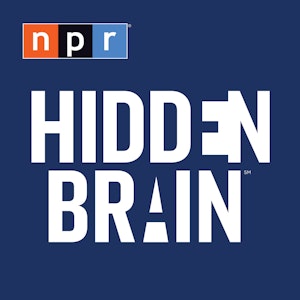Shankar Vedantam
Podcasts
Stories
-

Guys, We Have A Problem: How American Masculinity Creates Lonely Men
Boys get the message at a young age: don't show your feelings. Don't rely on anyone. This week, we bring you a favorite 2018 episode about misguided notions of masculinity in the United States. We explore how these notions create stressed-out romantic relationships, physical health problems, and a growing epidemic of loneliness. Plus, we consider how we might begin to tell a different story about what it means to be a man.
-
How Outrage Is Hijacking Our Culture And Our Minds
It can feel impossible to escape outrage nowadays. Anger is present across our screens — from TV news to social media. New social science research asks: What's the effect of all this outrage?
-

Screaming Into The Void: How Outrage Is Hijacking Our Culture, And Our Minds
Turn on the news or look at Twitter, and it's likely you'll be bombarded by outrage. Many people have come to believe that the only way to spark change is to incite anger. This week on Hidden Brain, how outrage is hijacking our conversations, our communities, and our minds.
-

Baby Talk: Decoding The Secret Language Of Babies
Babies are speaking to us all the time, but most of us have no clue what they're saying. To researchers, though, the babbling of babies is knowable, predictable, and best of all, teachable to us non-experts. This week, we revisit our May 2018 primer on how to decipher the secret language of babies and young children.
-

We're All Gonna Live Forever! The Stories We Tell About Conquering Death
Last week, we spoke with psychologist Sheldon Solomon about the fear of death and how it shapes our actions. This week, we pivot from psychology and politics to religion and history as we explore how people have tried to resolve these fears. We talk with philosopher Stephen Cave about the ways we assure ourselves that death is not really the end.
-

We're All Gonna Die! How Fear Of Death Drives Our Behavior
Death may be inescapable, but we do our best to avoid thinking about it. Psychologist Sheldon Solomon says we're not very successful, though. This week on Hidden Brain, we confront how death anxiety courses through our actions, even when we don't realize it.
-

You Can't Hit Unsend: How A Social Media Scandal Unfolded At Harvard
Social media sites offer quick and easy ways to share ideas, crack jokes, find old friends. They can make us feel part of something big and wonderful and fast-moving. But the things we post don't go away. And they can come back to haunt us. This week, we explore how one teenager's social media posts destroyed a golden opportunity he'd worked for all his life.
-

You 2.0: Decide Already!
For the last episode in our You 2.0 series, we bring you a favorite conversation with Harvard researcher Dan Gilbert. He explains why we're bad at predicting our future happiness, how that affects our decision making, and why we're actually happier after making a decision that feels irrevocable.
-

You 2.0: Deep Work
When your phone buzzes or a notification pops up your screen, do you stop what you're doing to look and respond? That's what many of us are doing. Even though we think we should be less distracted by technology, we haven't admitted the true cost of these interruptions. This week, we revisit our 2017 conversation with computer scientist Cal Newport, and consider ways we can all immerse ourselves in more meaningful work.
-

You 2.0: Rebel With A Cause
Francesca Gino studies rebels — people who practice "positive deviance" and achieve incredible feats of imagination. They know how, and when, to break the rules that should be broken. So how can you activate your own inner non-conformist? This week, we ponder the traits of successful rebels as we revisit our 2018 conversation with Gino.
